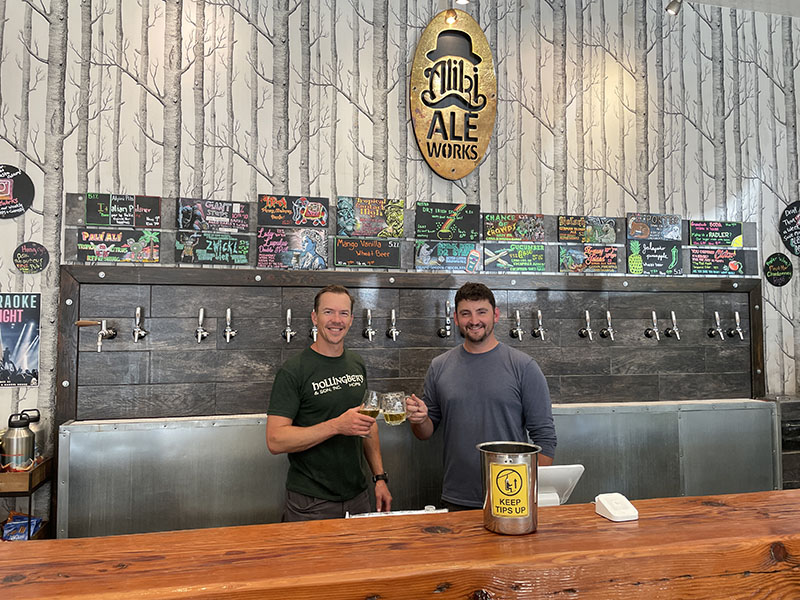Two local breweries serve up distinctive, sustainable practices.
The largest byproduct of the brewery process is spent grain, and most breweries today divert spent grains to farms for animal feed or to composting facilities. Breweries also practice energy efficiency and water-saving techniques. Yet, Great Basin Brewing Co. in Reno, Sparks, Carson City, and Minden, and Alibi Ale Works in Incline Village and Truckee have distinctive earth-friendly practices.
Leave No Trace
Mark Estee, owner of Reno Local Food Group, is committed to continuing the legacy of the Great Basin Brewing Co. Founded in 1993, the brewery’s owners always have focused on reduced waste, recycling, and sustainability. Today, all takeout items are in eco-friendly compostable packages, and staff members recycle everything they can. To save energy, buildings are on automatic thermostats, and non-essential lights are motion activated or on timers.
Traditionally, Great Basin sent its spent grain to local farms. This year, it will exclusively send grains to Park Ranch in Carson Valley. The Park Ranch Meats butcher shop, located next to Great Basin’s Minden location, will provide a variety of burgers, steaks, and other delicious cuts of grain-fed beef to be served in all four Great Basin Brewing Co. restaurants and brewpubs. Spent grains also are used in breads, pizza dough, and other food items in the restaurant. This will be a closed-loop food system that focuses on hyper-local food sourcing.
Great Basin Brewing Co. leaders are proud of these efforts that align with the company’s motto, “Making the world a better place, one pint at a time.”

CO2 Advantage
Alibi Ale Works’ owners employ a carbon dioxide capturing system that saves the company money, reduces CO2 emissions, and even positively affects the taste of its beer. The brewer uses spunding, a process in which CO2 naturally produced during fermentation is used in the beer, thereby preventing 2,600 pounds per year of CO2 from being released into the atmosphere. The bubbles created by the CO2 capturing process lead to finer CO2 bubbles in the ale, improves aroma quality, and adds creaminess, all enhancing the quality of the ale.
Being that Alibi is located in the Tahoe Basin, creating its own CO2 also is an advantage in terms of supply issues, particularly during the winter months when heavy snowfall can cause hiccups in the supply chain. Alibi also uses an ozone system that reduces the use of harmful chemicals in facility cleaning.
“We always strive to make environmentally responsible choices and work in the most sustainable way possible,” says Kevin Drake, co-owner and president of Alibi Ale Works.
Drake studied and worked in environmental science and brought that knowledge and ethic to brewing at Alibi Ale Works.
Every food or drink choice consumers make is a sustainability decision. Green Dining Nevada encourages people to frequent breweries and restaurants that have the health of our planet in mind. Great Basin and Alibi exemplify how to keep customer satisfaction in balance with nature.
GreenUP! is a 501(c)(3) organization that provides environmental education to local business owners.
RESOURCES
Alibialeworks.com
Greatbasinbrewingco.com
Greendiningnv.com
Greenupnv.org
Nvbeer.com
Nvgreenbusiness.org


